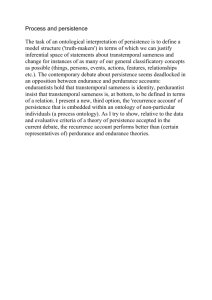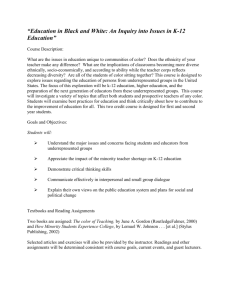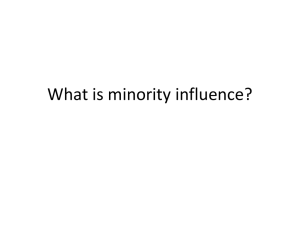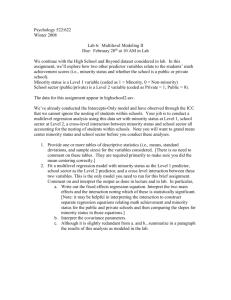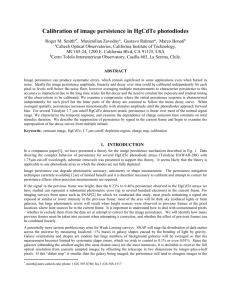2012-13 Minority Male Mentoring Program Year-End
advertisement
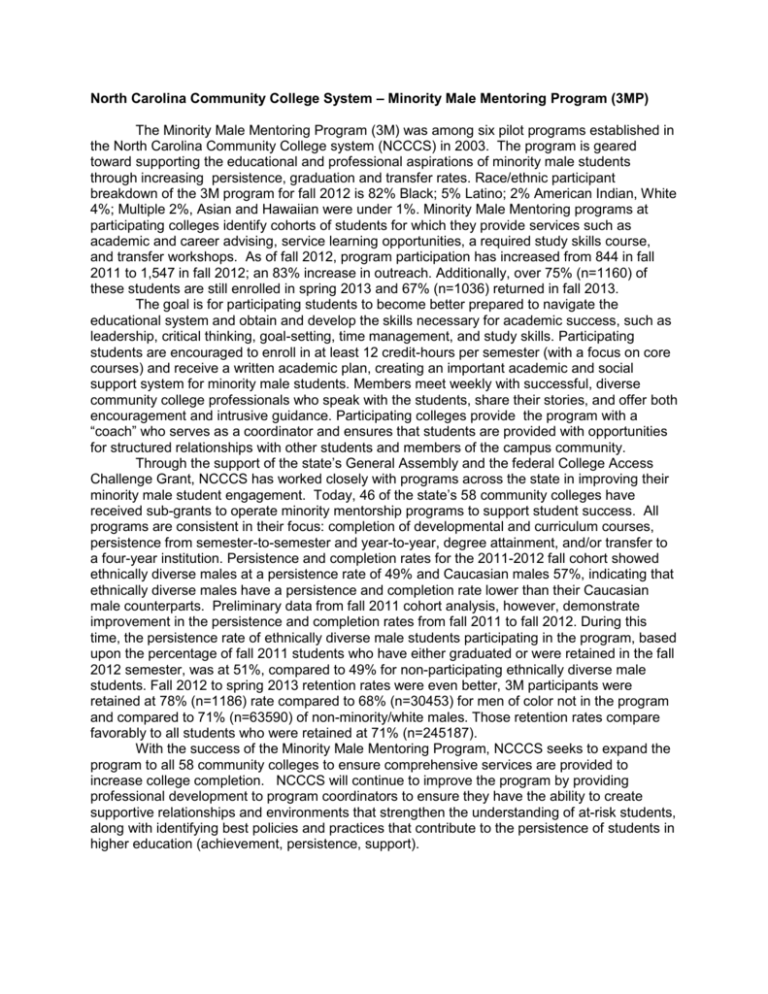
North Carolina Community College System – Minority Male Mentoring Program (3MP) The Minority Male Mentoring Program (3M) was among six pilot programs established in the North Carolina Community College system (NCCCS) in 2003. The program is geared toward supporting the educational and professional aspirations of minority male students through increasing persistence, graduation and transfer rates. Race/ethnic participant breakdown of the 3M program for fall 2012 is 82% Black; 5% Latino; 2% American Indian, White 4%; Multiple 2%, Asian and Hawaiian were under 1%. Minority Male Mentoring programs at participating colleges identify cohorts of students for which they provide services such as academic and career advising, service learning opportunities, a required study skills course, and transfer workshops. As of fall 2012, program participation has increased from 844 in fall 2011 to 1,547 in fall 2012; an 83% increase in outreach. Additionally, over 75% (n=1160) of these students are still enrolled in spring 2013 and 67% (n=1036) returned in fall 2013. The goal is for participating students to become better prepared to navigate the educational system and obtain and develop the skills necessary for academic success, such as leadership, critical thinking, goal-setting, time management, and study skills. Participating students are encouraged to enroll in at least 12 credit-hours per semester (with a focus on core courses) and receive a written academic plan, creating an important academic and social support system for minority male students. Members meet weekly with successful, diverse community college professionals who speak with the students, share their stories, and offer both encouragement and intrusive guidance. Participating colleges provide the program with a “coach” who serves as a coordinator and ensures that students are provided with opportunities for structured relationships with other students and members of the campus community. Through the support of the state’s General Assembly and the federal College Access Challenge Grant, NCCCS has worked closely with programs across the state in improving their minority male student engagement. Today, 46 of the state’s 58 community colleges have received sub-grants to operate minority mentorship programs to support student success. All programs are consistent in their focus: completion of developmental and curriculum courses, persistence from semester-to-semester and year-to-year, degree attainment, and/or transfer to a four-year institution. Persistence and completion rates for the 2011-2012 fall cohort showed ethnically diverse males at a persistence rate of 49% and Caucasian males 57%, indicating that ethnically diverse males have a persistence and completion rate lower than their Caucasian male counterparts. Preliminary data from fall 2011 cohort analysis, however, demonstrate improvement in the persistence and completion rates from fall 2011 to fall 2012. During this time, the persistence rate of ethnically diverse male students participating in the program, based upon the percentage of fall 2011 students who have either graduated or were retained in the fall 2012 semester, was at 51%, compared to 49% for non-participating ethnically diverse male students. Fall 2012 to spring 2013 retention rates were even better, 3M participants were retained at 78% (n=1186) rate compared to 68% (n=30453) for men of color not in the program and compared to 71% (n=63590) of non-minority/white males. Those retention rates compare favorably to all students who were retained at 71% (n=245187). With the success of the Minority Male Mentoring Program, NCCCS seeks to expand the program to all 58 community colleges to ensure comprehensive services are provided to increase college completion. NCCCS will continue to improve the program by providing professional development to program coordinators to ensure they have the ability to create supportive relationships and environments that strengthen the understanding of at-risk students, along with identifying best policies and practices that contribute to the persistence of students in higher education (achievement, persistence, support).


